Events
- Conferences & Symposiums
- Keynote Speaker Series
- Event Archive
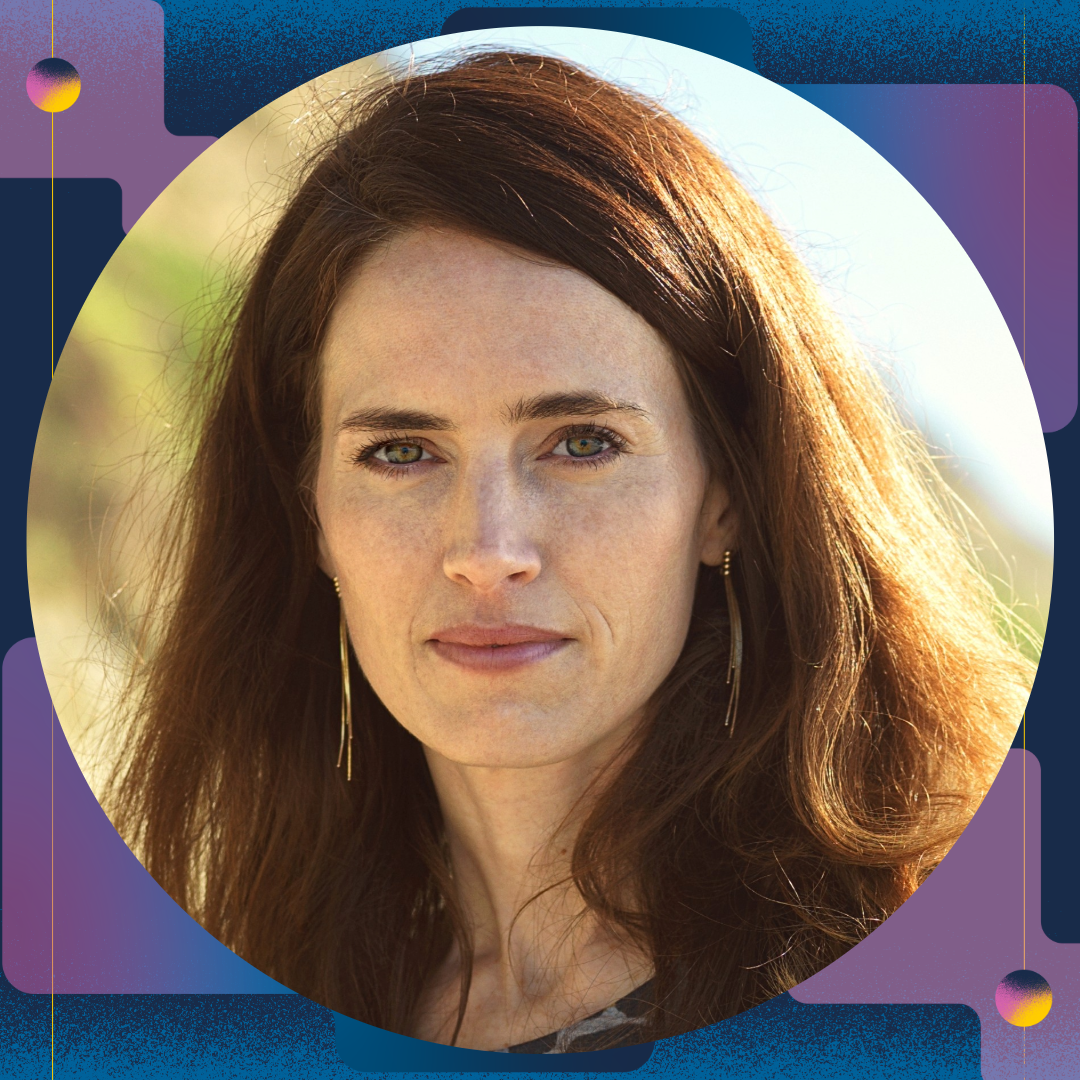
The Institute for Practical Ethics welcomed Jennifer Jacquet as the 2025 keynote speaker.
Epistemic conditions – what was known and when – often shape our views of responsibility. Using a variety of methods and newly uncovered meat industry documents, environmental scientist Jennifer Jacquet will describe what the United States meat industry knew about climate change, how and when they knew it, and how they responded — and then how that compares to the oil and gas industry.
Jacquet will explain how attribution research contributed to our understanding of these two sectors as significant polluters, and illustrate some of the ways the meat and dairy industry influenced public views about climate change. She’ll end with an “alternative history” of what U.S. emissions might have looked like – that is, if civil society efforts to mitigate climate change had been successful.
Jennifer Jacquet is a Professor of Environmental Science and Policy at the Rosenstiel School of Marine, Atmospheric, and Earth Science at the University of Miami, and affiliated faculty with the Abess Center for Ecosystem Science and Policy. She is also Associate Research Director of the Climate Social Science Network (CSSN) at Brown University. From 2012–2022, she worked in the Department of Environmental Studies at New York University. She is the author of dozens of refereed research articles as well as two books: Is Shame Necessary? (Pantheon, 2015) and The Playbook (Pantheon, 2022).
Learn more at https://jenniferjacquet.com/
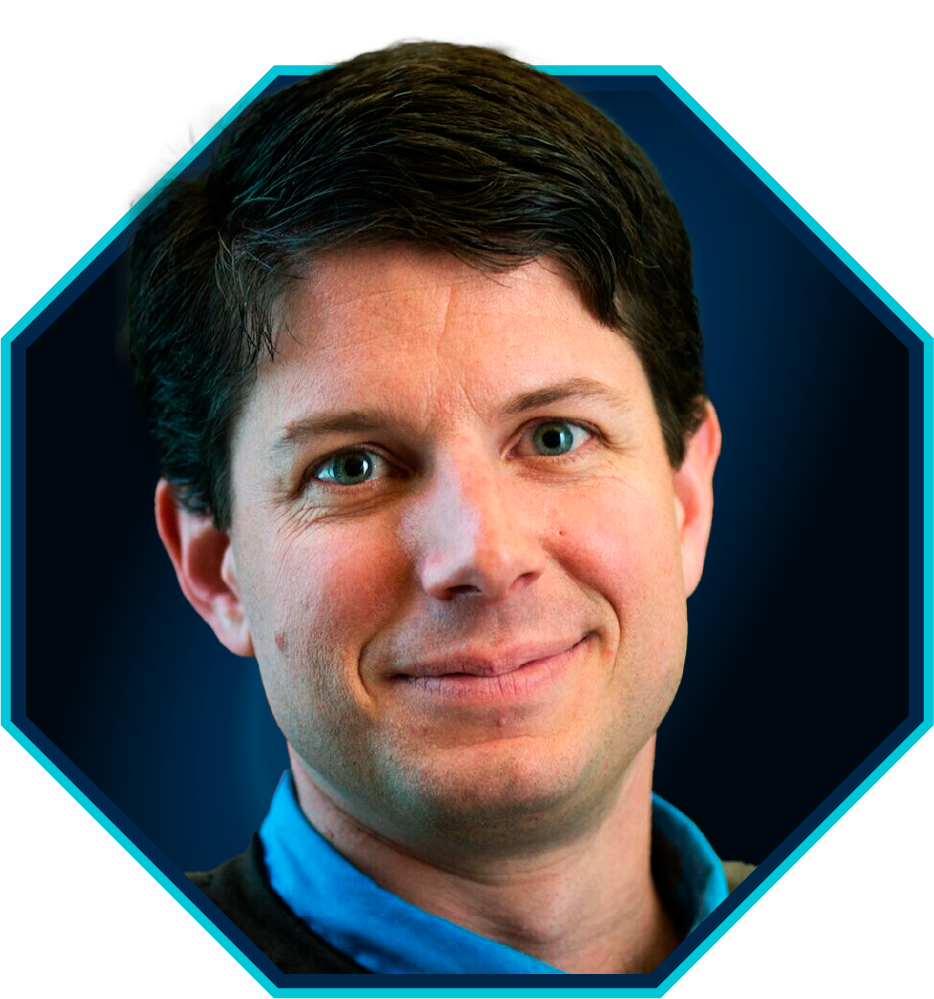 The Ethical and Policy Implications of Artificial Intelligence
The Ethical and Policy Implications of Artificial IntelligenceThe Institute for Practical Ethics welcomed David Danks as the 2024 keynote speaker.
David Danks, a professor in the Department of Philosophy and Halıcıoğlu Data Science Institute at UC San Diego, explored the nature of responsible artificial intelligence (AI), arguing it involves much more than code or data. Assessing current responsible AI tactics, he offered practical and policy approaches and underscored that further development of ethical AI requires rethinking practices in academia, government and industry.
Danks, a national authority on artificial intelligence, is a member of the National AI Advisory Committee. His research interests are at the intersection of philosophy, cognitive science and machine learning, using ideas, methods and frameworks from each to advance our understanding of complex, interdisciplinary problems.
David Danks is a professor in the Department of Philosophy and the Halıcıoğlu Data Science Institute at UC San Diego, and an affiliate of the Department of Computer Science and Engineering. He currently serves on multiple advisory boards, including the National AI Advisory Committee; the Computer Science and Telecommunications Board (CSTB) of the National Academies; the Responsible AI Council for the Department of Defense; and the Salesforce Ethical & Responsible Use advisory council.
Danks has received a James S. McDonnell Foundation Scholar Award (2008) and an Andrew Carnegie Fellowship (2017). He was previously the L.L. Thurstone Professor of Philosophy & Psychology at Carnegie Mellon University, where he served as the Chief Ethicist of the university’s Block Center for Technology & Society, and co-director of their Center for Informed Democracy and Social Cybersecurity.
After receiving his Ph.D. from the UC San Diego Department of Philosophy in 2001, he returned to campus as a professor in 2021 and joined the Institute for Practical Ethics in the School of Arts and Humanities as an advisory board member. His research interests range widely across philosophy, cognitive science, and machine learning, including their intersection. Danks has examined the ethical, psychological, and policy issues around AI and robotics across multiple sectors, including transportation, healthcare, privacy, defense, and security. He has also done significant research in computational cognitive science and developed multiple novel causal discovery algorithms for complex types of observational and experimental data.
Learn more at daviddanks.org
Dr. Naomi Oreskes of Harvard University gave the 2022-2023 annual keynote titled “Funding Matters” on Oct. 19, 2022, in person.
Naomi Oreskes is a former history professor and provost at UC San Diego. She is now Henry Charles Lea Professor of the History of Science and Affiliated Professor of Earth and Planetary Sciences at Harvard University.
A world-renowned geologist, historian, and public speaker, she is a leading voice on the role of science in society and the reality of anthropogenic climate change.
 Institute for Practical Ethics keynote address advocates for cross-disciplinary development of groundbreaking technology
Institute for Practical Ethics keynote address advocates for cross-disciplinary development of groundbreaking technologyThe UC San Diego Institute for Practical Ethics presented a new model for artificial intelligence technology Dec. 3, 2020 virtually hosting famed AI expert Stuart Russell as their third annual keynote speaker. Russell, former vice-chair of the World Economic Forum’s Global Agenda Council on AI and Robotics, advocated for artificial intelligence that takes a human-centered approach, one with the capacity to lift the living standards of everyone on Earth.
“How does a machine take actions in the service of our objectives when it doesn’t even know what they are?” said Russell, the Smith-Zadeh Chair in Engineering at UC Berkeley and founder of that university’s Center for Human-Compatible Artificial Intelligence. “That’s a puzzle, but it’s a solvable puzzle.”
Broadly defined, artificial intelligence is the development of computers to perform tasks that are traditionally completed by humans. Some of the most outrageous examples include cyborg-style robots, but AI already encompasses many aspects of daily life: speech and face recognition, social media algorithms and even password protection on the websites we log into every day.
But the same technological advances that led to these uses may have much bigger implications in the near future, as investment and interest in artificial intelligence grows. Will self-driving cars be safe? Can language barriers be more easily overcome for learning? Should governments expand the use of autonomous weapons?
Russell explained his new model, what he calls “provably beneficial AI,” as grounded by three, informal principles: the only objective of the machine is to satisfy human preferences, the machine does not know what those preferences are—an uncertainty he said allows humans to remain in control—and human behavior, through active choice, gives evidence of what those preferences are and will become.
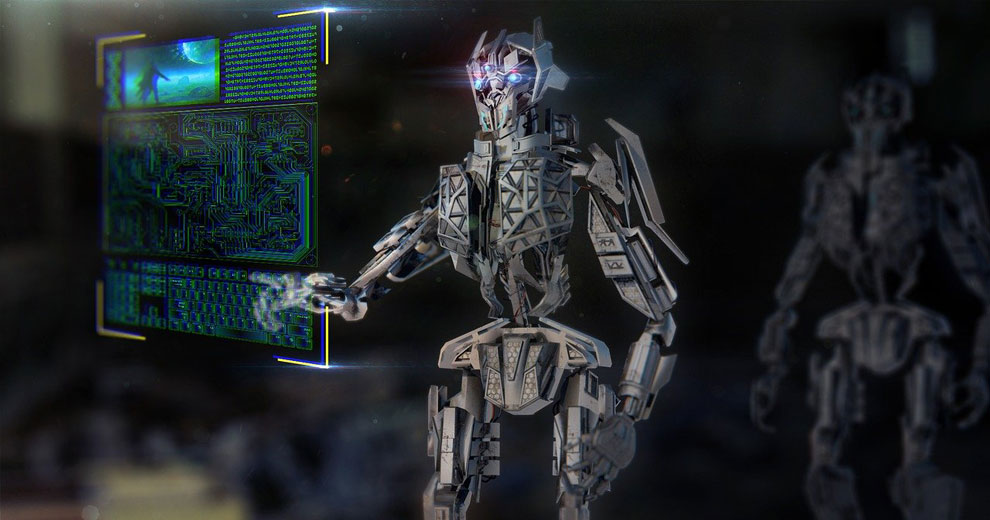 Designers then take these three principles and use them in development, allowing machines to behave very differently than the traditional, standard model of artificial intelligence technology known today: where human preferences do not exist.
Designers then take these three principles and use them in development, allowing machines to behave very differently than the traditional, standard model of artificial intelligence technology known today: where human preferences do not exist.
Using the example of the self-driving car, a passenger tells the car to take it to the airport and, under the standard model, the car will attempt to achieve this objective at any cost, including not allowing itself to be “turned off” because, Russell explained, this would mean the machine had failed the task.
“In the new model, the thinking goes in a quite different way,” he said: the machine knows it may be turned off if it does something wrong, but it doesn’t know what “wrong” means, and therefore relies on the user to teach it. Optimally, the new model forces machines, robots or algorithms to automatically defer to humans, ask permission before taking action, be “minimally invasive” and empower action in the user by providing more choices.
“With this model, the better the AI, the better the outcome because it’s going to be better able to infer your preferences and better able to satisfy those preferences,” he said.
Watch the recorded livestream:
Stuart Russell received his bachelor's degree with first-class honours in physics from Oxford University in 1982 and his Ph.D. in computer science from Stanford University in 1986. He then joined the faculty of the University of California at Berkeley, where he is professor (and formerly chair) of Electrical Engineering and Computer Sciences and holder of the Smith-Zadeh Chair in Engineering. He is also an adjunct professor of neurological surgery at UC San Francisco and vice-chair of the World Economic Forum's Council on AI and Robotics.
Russell is a recipient of the Presidential Young Investigator Award of the National Science Foundation, the IJCAI Computers and Thought Award, the World Technology Award (Policy category), the Mitchell Prize of the American Statistical Association and the International Society for Bayesian Analysis, the ACM Karlstrom Outstanding Educator Award, and the AAAI/EAAI Outstanding Educator Award. In 1998, he gave the Forsythe Memorial Lectures at Stanford University, and from 2012 to 2014 he held the Chaire Blaise Pascal in Paris. He is a Fellow of the American Association for Artificial Intelligence, the Association for Computing Machinery and the American Association for the Advancement of Science.
His research covers a wide range of topics in artificial intelligence including machine learning, probabilistic reasoning, knowledge representation, planning, real-time decision making, multitarget tracking, computer vision, computational physiology, global seismic monitoring and philosophical foundations. His books include "The Use of Knowledge in Analogy and Induction," "Do the Right Thing: Studies in Limited Rationality" (with Eric Wefald) and "Artificial Intelligence: A Modern Approach" (with Peter Norvig). His current concerns include the threat of autonomous weapons and the long-term future of artificial intelligence and its relation to humanity.
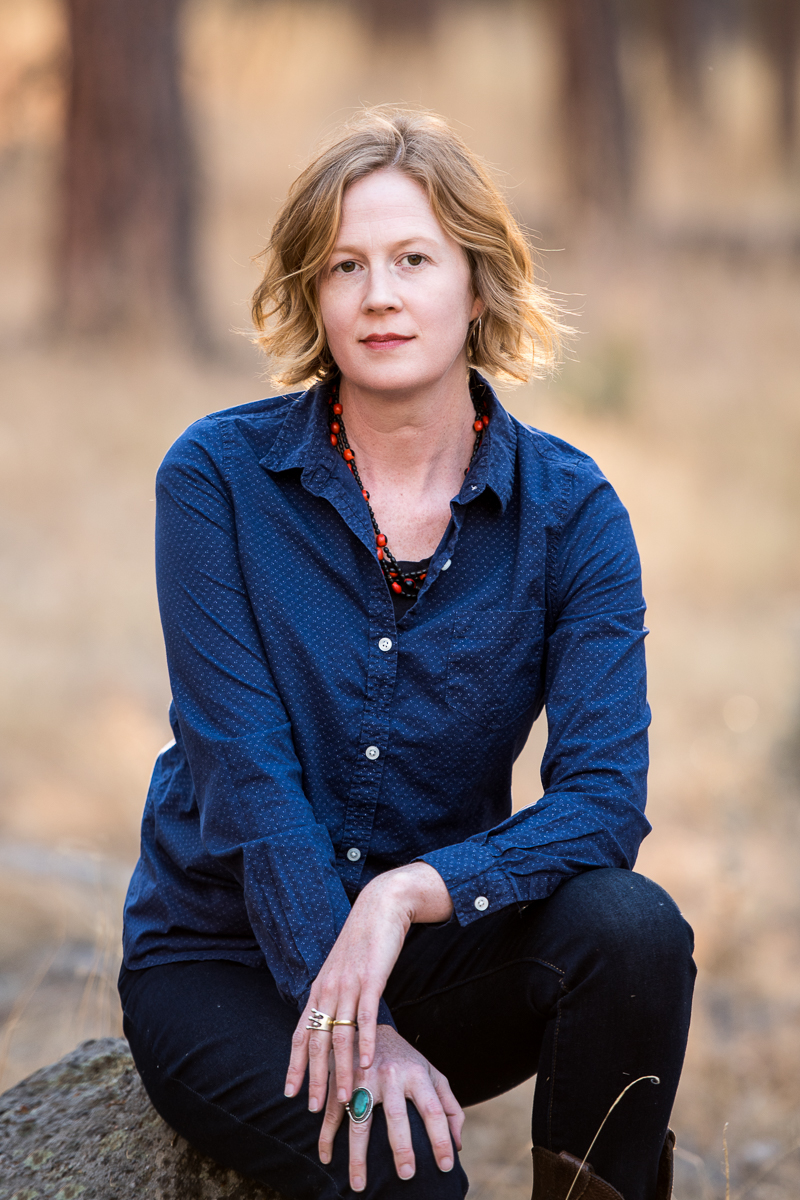
During UC San Diego official Earth Month celebrations, the university’s Institute for Practical Ethics welcomed environmental journalist and author Emma Marris for a unique and optimistic talk — one where “rewilding” is a reality, assisted migration is possible and the romantic notion of pristine wilderness is tossed out.
Marris is the author of “Rambunctious Garden: Saving Nature in a Post-Wild World” and gave the second keynote address in what is a yearly series for the institute, this year held Wednesday, April 24, 2019.
“Bringing guest speakers to campus is an important way for the Institute for Practical Ethics to introduce to the community new and groundbreaking ideas about ethics and science that matter to society,” said Craig Callender, co-director of the institute. Callender uses Marris’ “Rambunctious Garden” in his undergraduate course “Philosophy and the Environment,” and Marris will answer questions prepared by this quarter’s students after her public talk.
“Marris’ insights are provocative, challenging the way most of us think about environmental conservation, and I’m sure she will be well received both by students and the greater San Diego community,” he said.
Watch the full presentation, produced by University of California Television.
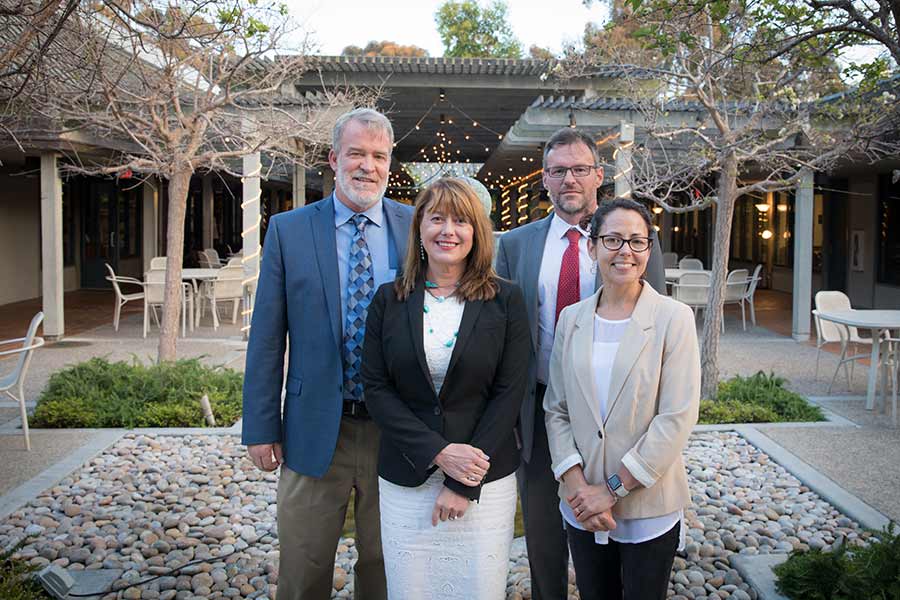 Should we bring back the woolly mammoth?
Should we bring back the woolly mammoth?As scientists get closer and closer to being able to bring extinct animals back to life, big questions emerge. What led to extinction in the first place? What would be the impacts on other species or the environment? Just because we can do it, does that mean we should?
To help answer these questions and celebrate the inaugural year of the UC San Diego Institute for Practical Ethics, guest speaker Beth Shapiro, a world-renowned professor of ecology and evolutionary biology at UC Santa Cruz, spoke to a packed house of researchers and students from across campus and the greater community on April 19, 2018.
Organized by the Institute for Practical Ethics — with the overall purpose of promoting research and multi-disciplinary discussion about the ethics of science, technology and medicine — co-directors John Evans and Craig Callender said having Shapiro as their guest speaker was the perfect example of the mission and impact of the institute.
Shapiro said there will “probably” be an elephant born one day that has some form of mammoth DNA.
“But isn’t it great,” she said, “that we can have all of these conversations — talk about what we should do and could do, and how to regulate it, and who should own it … and what our moral authority is to do any of this — before that technology exists? And that’s why institutes like this have such an amazing place in society today.”
Watch the full presentation, produced by University of California Television.